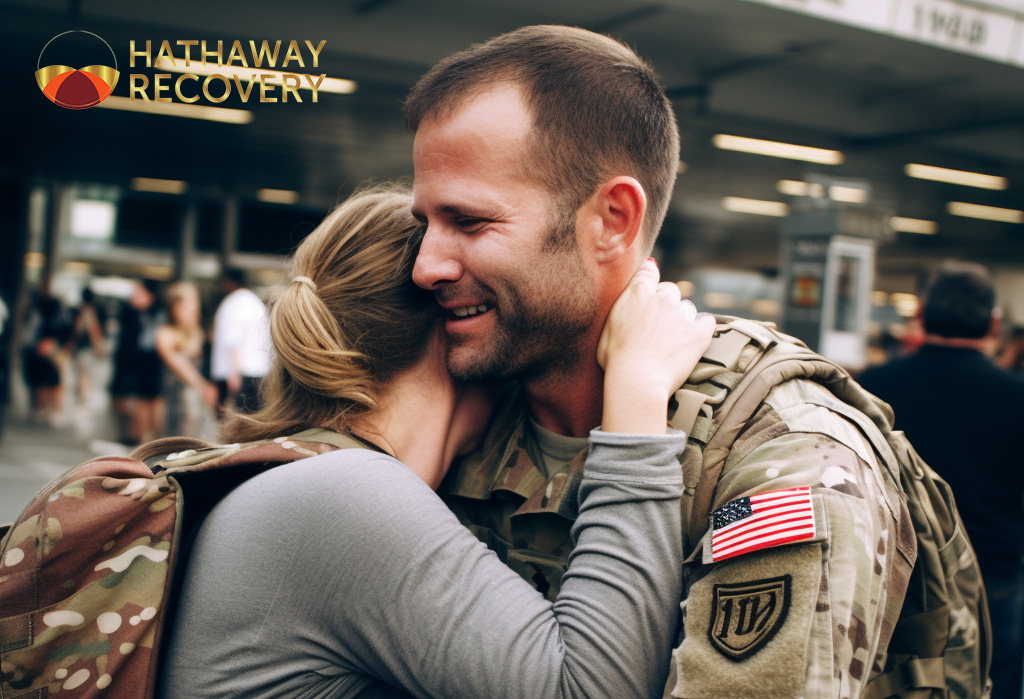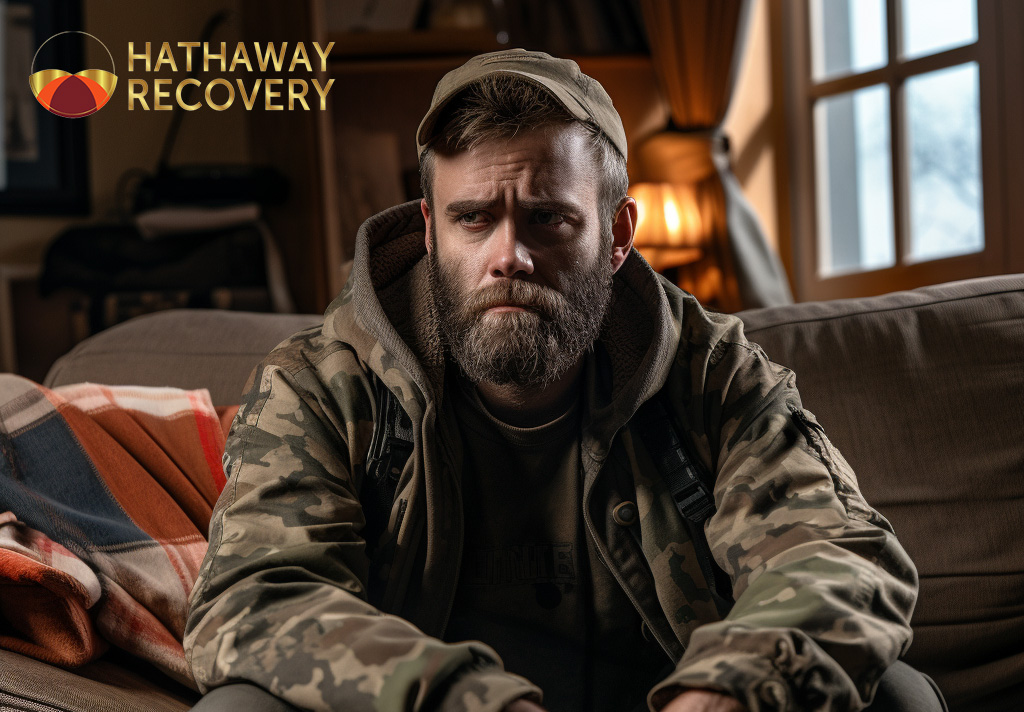Veterans who return home after a deployment or combat experience may find it difficult to adapt to civilian life.
One of the most difficult challenges for military personnel is to cope with the trauma they have experienced during their deployment. This could include significant injuries, the death of another soldier, or a sexual assault.
Veterans who have experienced severe or moderate combat, such as those in the Army and Marine Corps, are more likely to suffer from post-traumatic disorder (PTSD). They may also display signs of drug abuse and other physical issues related to their traumas.

Veteran Addiction Help
In one study, 11% of Veterans who sought services from the VA for the first time met the criteria associated with a substance abuse disorder.
There are many reasons for this, including physical disabilities, mental health issues, and prescribing addictive opioids to treat pain and injury. Trauma from combat can also lead to substance abuse.
Veterans with mental illness may be reluctant to seek treatment due to the stigma attached to mental disorders. They might also self-medicate by drinking alcohol or using other drugs.
Veterans’ Stress and Civilian Challenges
Stress is an inevitable part of military service, particularly deployments to combat zones. Veterans can return from war zones having experienced or witnessed traumatic events. Veterans may have been injured or are dealing with:
- Chronic Pain
- Mental health problems such as PTSD, depression, or other mental issues.
- Substance dependence or addiction.
- Homelessness.
It can be difficult and uncomfortable for Veterans to leave the military and return to civilian life. Add to that the problems of pain, injury, trauma, and alcohol or drug addiction, you can see how difficult it is for a Veteran.
Many Veterans are not able to get the help that they need because they refuse to ask for it or don’t want to. They may be more at risk of suicide if they don’t get the help they need. According to the National Institute on Drug Abuse, suicide rates for Veterans are higher than those of the general population. In 2020, there will be 6146 Veteran suicides, which is 343 less than in 2019.

Veterans and alcohol abuse
Alcohol abuse is common among Service Members and can persist long after service has ended.
Combat exposure is a significant risk factor in the development of veteran alcoholism. One study that looked at the alcohol consumption patterns of 1,120 soldiers from a brigade of infantry returning from deployment discovered a link between alcohol abuse and combat (especially when it came to exposure to threats and other atrocities). A study of 1,120 soldiers found that 25% were drinking excessively 3-4 months following deployment. Of the sampled, 12% had behavioral issues related to alcohol abuse.
Statistics and prevalence of drug use and abuse among veterans
Veterans who receive a prescription to treat pain or injuries are at risk of developing an addiction or dependence on opioid painkillers. Efforts have been made to reduce opioid abuse and addiction.
Evidence suggests that misuse of opioids prescribed by doctors can increase the risk of addiction. Two out of ten Veterans with PTSD also have a substance abuse disorder.
The United States Army issued a memo warning that treating PTSD using benzodiazepines is not worth the risks and could worsen a patient’s fear or delay their recovery.
Like many civilians, Veterans are at risk of developing substance abuse disorders. Marijuana is the most common drug used by Veterans. One government reported that heroin is the primary reason for Veteran admissions into substance abuse treatment centers. Cocains account for about 6%.
Some data suggest that Veterans are more inclined to smoke. Veterans smoking rates (14.6%) are a cause for concern. These conditions include coronary heart disease (CHD), lung cancer, and chronic bronchitis.

Veteran’s Addiction Treatment at Hathaway Recovery
Hathaway Recovery’s addiction treatment for veterans program is designed specifically for Veterans. We provide a wide range of Veteran-specific groups, programs, and benefits, as we understand that the needs of Veterans are different than those of other populations. Our treatment facilities include:
- Each Veteran is given a psychosocial evaluation, as well as an examination of their medical history and physical shortly after admission. This ensures that any co-morbid conditions can be identified and treated.
- Veterans are required to meet with their therapists individually once per week, along with daily check-ins.
- Group sessions.
- Local mutual-help groups are responsible for the nightly commitments.
Many individuals who serve in the U.S. Military are at a greater risk of developing mental and substance abuse disorders. This makes it more difficult to:
- Work/Life Balance:
- Protect yourself from stress-related disorders.
- Find out the impact of addiction on yourself and your family.
- Connect with others’ emotions.
- Recognize the early stages of PTSD.
Our healthcare professionals at Hathaway Recovery drug rehab for veterans understand the challenges and difficulties of life and how they can lead to addiction. They also know the need for unique treatment programs and specialized treatment for veterans.
We value your privacy and comfort. You will feel relaxed in our luxurious and state-of-the-art facilities. Hathaway Recovery has a professional and compassionate team ready to assist you.
We offer private rooms, individual attention, and treatment programs.
Contact the Admissions Department at (909) 971-3333 if you have any questions.
The information is entirely confidential.
Don’t miss the chance to better your life.
- Counseling Individuals
- Group counseling
- Family Drug Education
- Relapse Prevention Therapy
- Counseling for Grief






